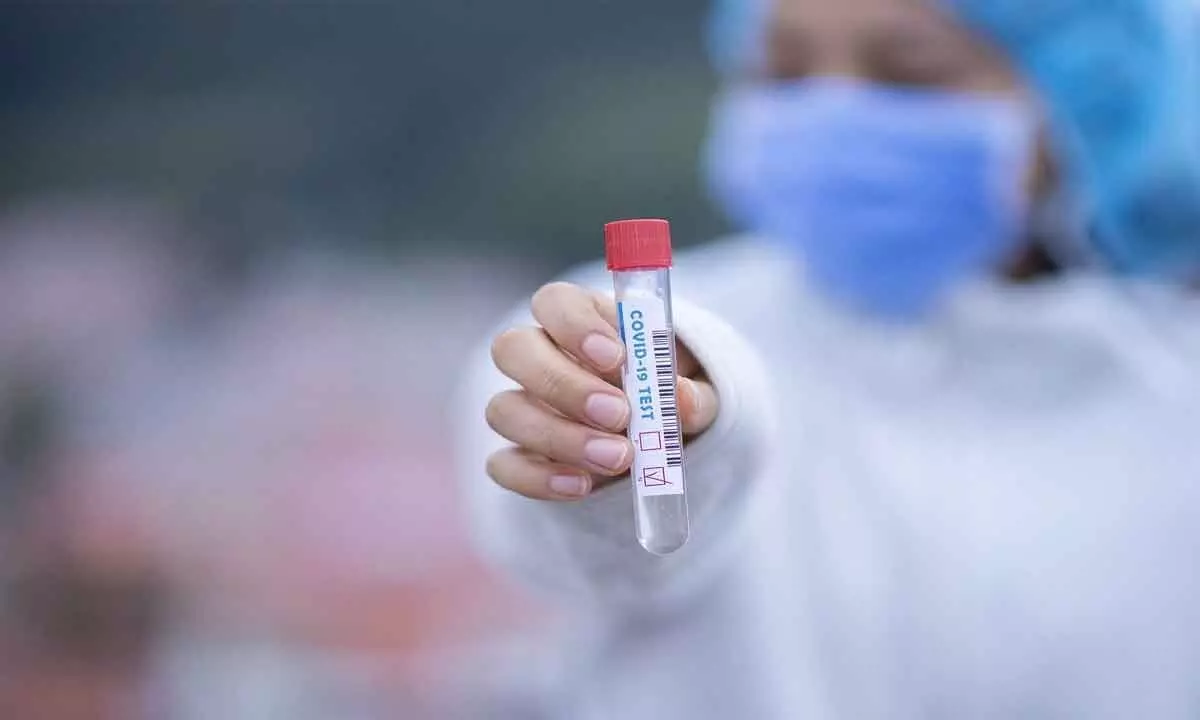New nanoparticle-based rapid COVID-19 test is more sensitive, durable

Representational Image
Scientists have developed a more sensitive and durable rapid COVID-19 test that uses polymer nanoparticles, rather than antibodies, to detect the SARS-CoV-2 virus.
Scientists have developed a more sensitive and durable rapid COVID-19 test that uses polymer nanoparticles, rather than antibodies, to detect the SARS-CoV-2 virus.
Rapid antigen tests can quickly and conveniently tell a person that they are positive for COVID-19. However, because antibody-based tests are not very sensitive, they can fail to detect early infections with low viral loads.
The test, described in the journal ACS Sensors, works under more extreme conditions than antibody-based tests.
The gold standard test for COVID-19 diagnosis remains the reverse transcription-polymerase chain reaction (RT-PCR).
Although this test is highly sensitive and specific, it generally takes 1-2 days to get a result, is expensive and requires special lab equipment and trained personnel.
In contrast, rapid antigen tests are fast -- usually taking 15-30 minutes -- and people can take them at home with no training, the researchers said.
However, they lack sensitivity, which sometimes results in false negatives, they said.
The tests use antibodies against SARS-CoV-2 for detection, which can't withstand wide ranges of temperature and pH.
The researchers at Newcastle University in the UK and colleagues wanted to make a low-cost, rapid, robust and highly sensitive COVID-19 test that uses molecularly imprinted polymer nanoparticles (nanoMIPs) instead of antibodies.
They produced nanoMIPs against a small fragment, or peptide, of the SARS-CoV-2 spike protein by creating molecular imprints, or molds, in the nanoparticles.
These nanoscale binding cavities had a suitable size and shape to recognise and bind the imprinted peptide and, therefore, the entire protein.
The researchers attached the nanoparticles that bound most strongly to the peptide to printed electrodes.
After showing that the nanoMIPs could bind SARS-CoV-2, they developed a 3D-printed prototype device that detects binding of the virus by measuring changes in temperature.
When the team added samples from seven patient nasopharyngeal swabs to the device, the liquid flowed over the electrode, and the researchers detected a change in temperature for samples that had previously tested positive for COVID-19 by RT-PCR.
The test required only 15 minutes, and preliminary results indicated that it could detect a 6,000-times lower amount of SARS-CoV-2 than a commercial rapid antigen test.
Unlike antibodies, the nanoMIPs withstood warm temperatures -- which could give the test a longer shelf life in hot climates -- and acidic pH -- which might make it useful for monitoring SARS-CoV-2 in wastewater and saliva samples.
However, to prove that the test has a lower false negative rate than existing rapid antigen tests, it must be tested on many more patient samples, the researchers said.








